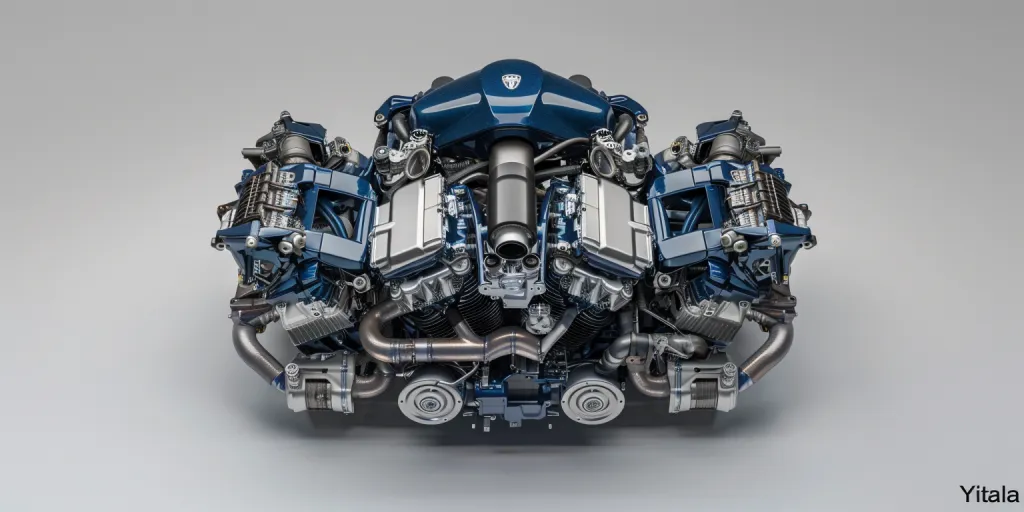Hydrogen engines are at the forefront of eco-friendly automotive technology, promising a greener alternative to traditional fossil fuels. By harnessing the most abundant element in the universe, these engines offer a sustainable solution to power vehicles. This article explores the intricacies of hydrogen engines, their benefits, how to select the right one, their lifespan, replacement process, and cost considerations.
Table of Contents:
– What is a hydrogen engine?
– What does a hydrogen engine do?
– How to choose a hydrogen engine
– How long do hydrogen engines last?
– How to replace a hydrogen engine
– How much are hydrogen engines?
What is a hydrogen engine?

A hydrogen engine is a type of internal combustion engine that uses hydrogen gas as its primary fuel source, rather than gasoline or diesel. Unlike conventional engines that emit CO2 and other harmful pollutants, hydrogen engines produce water vapor and heat as byproducts, making them an environmentally friendly alternative. These engines can be designed to power a variety of vehicles, from cars to buses, offering a versatile solution for reducing carbon footprints in the transportation sector.
What does a hydrogen engine do?

Hydrogen engines work similarly to traditional internal combustion engines but with a key difference: they combust hydrogen instead of gasoline or diesel. In a hydrogen engine, air and hydrogen gas are mixed in the combustion chamber. When ignited, the mixture burns to create a high-pressure gas that drives the engine’s pistons, generating mechanical power. This process efficiently converts the chemical energy of hydrogen into kinetic energy, propelling the vehicle forward with zero carbon emissions.
How to choose a hydrogen engine

Selecting the right hydrogen engine involves considering several factors, including vehicle type, intended use, and environmental impact. For personal vehicles, a smaller, more compact engine might be preferable, offering a balance between power and efficiency. For commercial or heavy-duty applications, a larger engine with higher torque might be necessary. Additionally, potential buyers should consider the availability of hydrogen refueling infrastructure in their area to ensure practicality and convenience.
How long do hydrogen engines last?

The lifespan of a hydrogen engine can vary depending on usage, maintenance, and design. Typically, these engines are designed to last as long as their gasoline counterparts, if not longer, due to the cleaner combustion process reducing wear on engine components. With proper maintenance, a hydrogen engine can last for several hundred thousand miles. Regular checks and balances, such as monitoring hydrogen purity and ensuring leak-proof fuel systems, are essential for maximizing engine life.
How to replace a hydrogen engine

Replacing a hydrogen engine is a task that requires specialized knowledge and tools, often best left to professionals. The process involves safely disconnecting the hydrogen fuel system, removing the old engine, and installing the new one, ensuring all connections are secure and leak-free. It’s crucial to follow manufacturer guidelines and safety protocols to prevent accidents, given the highly flammable nature of hydrogen gas.
How much are hydrogen engines?

The cost of hydrogen engines can vary widely based on size, power output, and technology level. Currently, they tend to be more expensive than traditional engines due to the advanced technology and materials required for handling hydrogen fuel. However, as demand increases and production scales up, prices are expected to decrease, making hydrogen engines a more accessible option for a broader range of consumers.
Conclusion:
Hydrogen engines represent a promising step towards sustainable transportation, offering a clean alternative to fossil fuel-powered vehicles. By understanding their operation, benefits, and maintenance needs, consumers can make informed decisions about adopting this green technology. As the automotive industry evolves, hydrogen engines are set to play a pivotal role in driving forward the eco-friendly mobility revolution.




